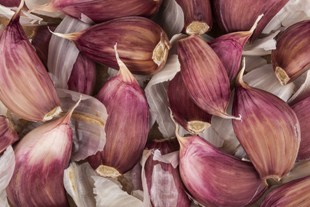Glutathione Fact Sheet
About Glutathione
Glutathione, or L-glutathione, is an amino acid known for its role as an antioxidant and its beneficial effects such as treating alcoholism, as well as helping prevent a number of diseases such as asthma, cancer, heart disease, liver disease. It is also linked with diseases which weaken the body’s defense system, Alzheimer’s disease, memory loss, Parkinson’s disease and osteoarthritis.
Glutathione is also involved in tissue building and repair, synthesizing chemicals and proteins, and for supporting the immune system.
Glutathione disease prevention and health benefits include:
- Cancer prevention
- High blood pressure prevention
- Neurodegenerative disease prevention
Glutathione and Aging
Cancer is responsible for approximately 13% of all annual deaths worldwide, and is characterized by uncontrolled abnormal cell growth from malignant tumors which metastasize and spread to bodily areas beyond the point of origin. Common cancers such as stomach, lung, colon, breast and liver are caused by the five leading behavioral and dietary risks of excess body weight, low fruit and vegetable intake, lack of exercise, smoking and alcohol use. Glutathione is a significant cancer preventative nutrient because its free radical neutralizing activity is pervasive – it exists in nearly every body system and is continuously regenerated in a repeating cycle that theoretically would defend the body effectively against oxidative stress. However, overabundance of oxidative stress depletes glutathione, allowing infections, cancer and other health conditions develop. Many health experts recommend increasing dietary sources of glutathione and other antioxidants, including selenium and vitamins C and E.
High blood pressure can cause heart muscle stress, and increase the risk of cardiac arrest. In animal studies, glutathione depletion and oxidative stress has caused severe high blood pressure, which was then normalized by glutathione and vitamins C and E supplementation. The researchers concluded that the oxidative stress resulted in the hypertension and antioxidant supplementation removed the harmful cause (3).
The brain reduces in size by an average of 5 to 10% during adult life. Hard clusters of damaged neurons can form plaques and age-related inflammation can develop. This can lead to a set of dementia-related symptoms categorized as Alzheimer’s disease. It affects more than 34 million people globally, and researchers continue to search for an effective treatment. Glutathione is the most abundant antioxidant in the brain and since oxidative stress impairs brain cells, keeping glutathione levels elevated throughout the aging process is critical for preserving cognitive health (4).
Oxidation is an additional age-related disease precursor, which environmental pollutants and the over-burdening of the body’s natural stores of antioxidants exacerbate. Healthy cells are damaged when oxygen circulates in the body, and the resulting free radicals are normally neutralized by the body’s antioxidant defense system. In modern times, however, the sheer high-level load of toxins in the environment resulting from stress increases the number of free radical induced mutations in healthy DNA, which if left untreated replicate and develop disease. To compensate for the extra oxidative damage, supplementing with dietary or nutraceutical antioxidants is necessary to help prevent disease. Glutathione is a powerful antioxidant because it recycles other antioxidants, including vitamins C and E and lipoic acid; a depleted supply of glutathione would result in an exponential deficiency.
Do I Have a Deficiency of Glutathione?
A physician can assess your glutathione level with a blood test, and a nutritionist can review your dietary intake and calculate the nutritional value consumed as food sources (6).
How Can I Add Glutathione to my Diet?
Glutathione dietary sources include: Garlic, onions and the cruciferous vegetables – broccoli, kale, collards, cabbage, cauliflower and watercress.
How Much Glutathione Should I Take?
The recommended standard dose is 420 mg – 500 mg a day.
Side Effects
Possible side effects of glutathione are not known at this time.
Contraindications
Kidney or liver disease may contraindicate with glutathione supplementation.
References
- Palkhivala, Alison. Medicinenet. “Glutathione: New Supplement on the Block.” July 30, 2001 http://www.medicinenet.com/script/main/art.asp?articlekey=50746
- WebMD. “Glutathione.” http://www.webmd.com/vitamins-supplements/ingredientmono-717-GLUTATHIONE.aspx?activeIngredientId=717&activeIngredientName=GLUTATHIONE
- Nosratola, D., et al. Scientific Contributions. “Induction of Oxidative Stress by Glutathione Depletion Causes Severe Hypertension in Normal Rats.” 2000. http://hyper.ahajournals.org/content/36/1/142.short
- Pocernicha, Chava B., et al. Biochimica et Biophysica Acta (BBA) – Molecular Basis of Disease. “Review: Elevation of Glutathione as a Therapeutic Strategy in Alzheimer Disease.” May 2012. http://www.ncbi.nlm.nih.gov/pubmed/22015471
Last Reviewed 11/Mar/2014







